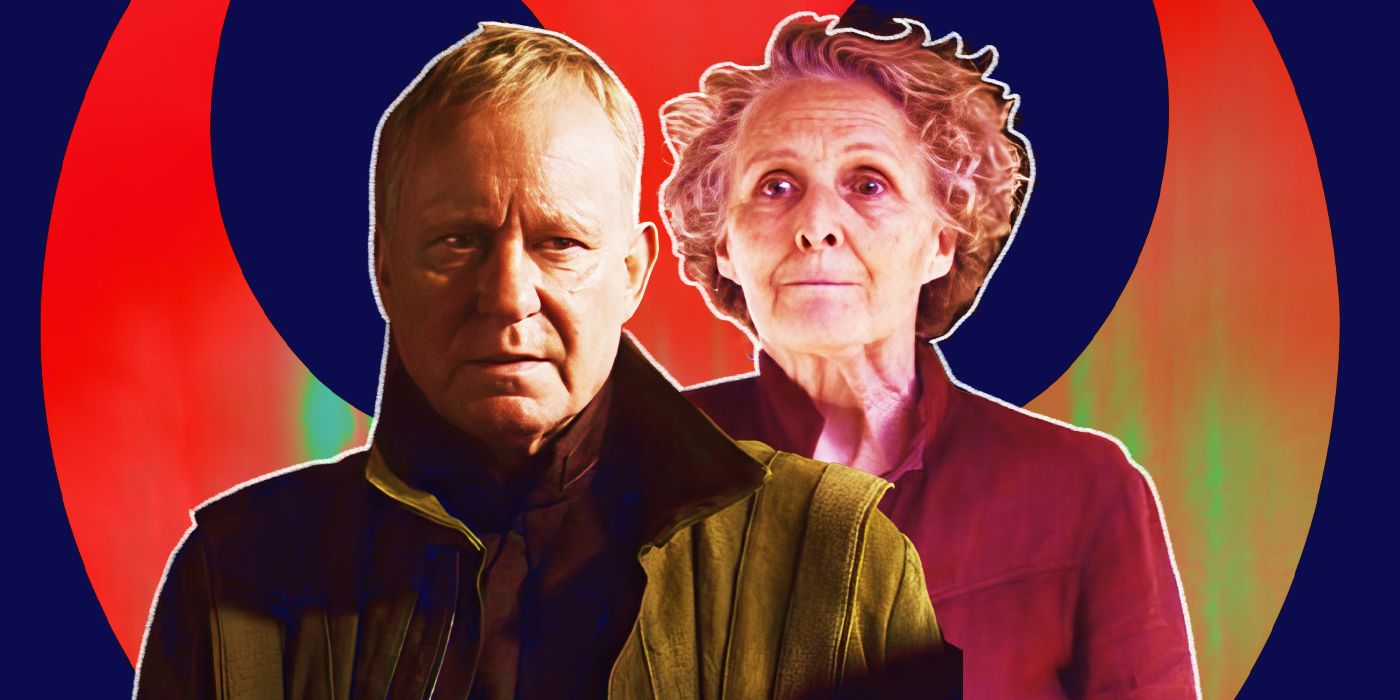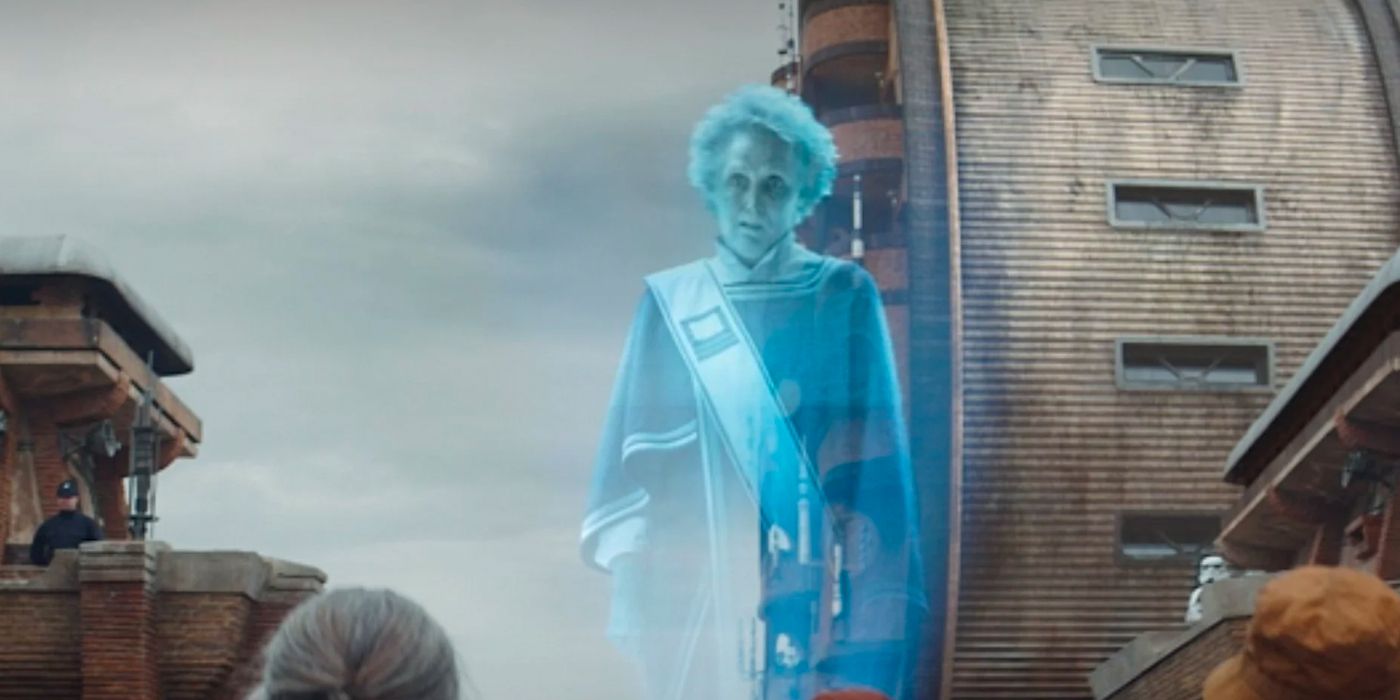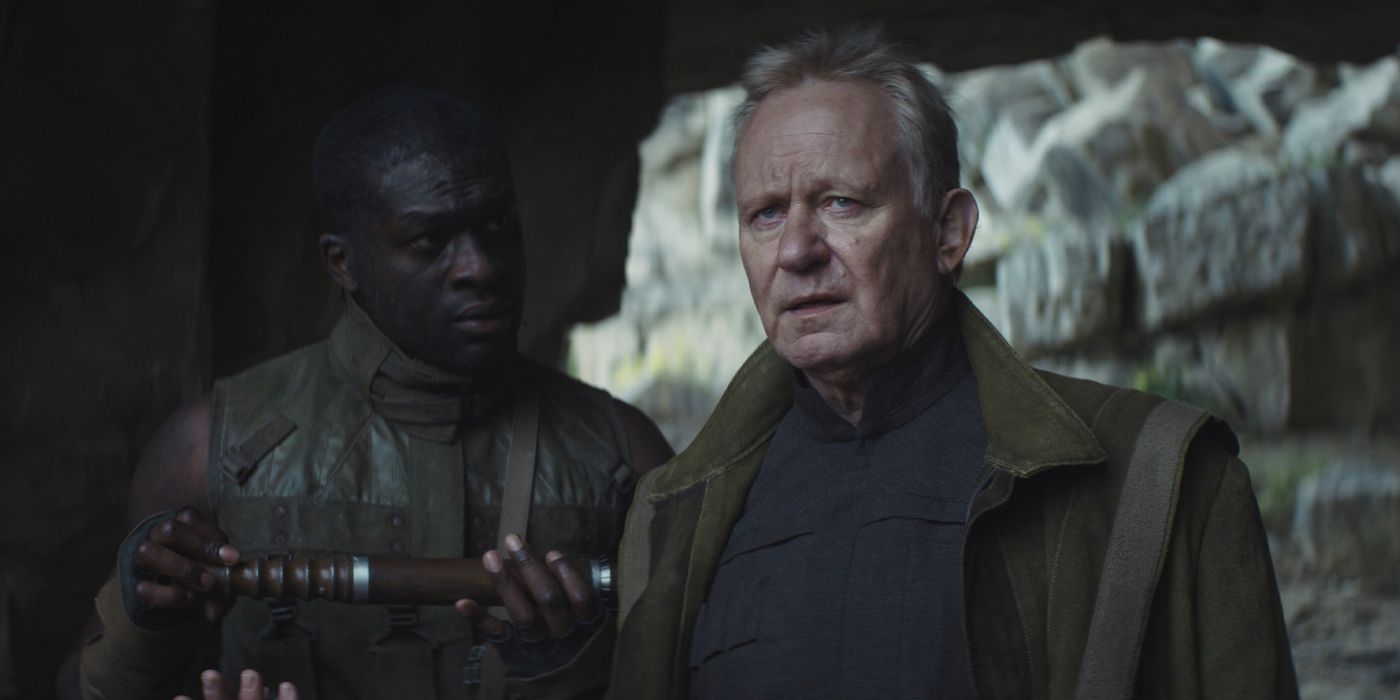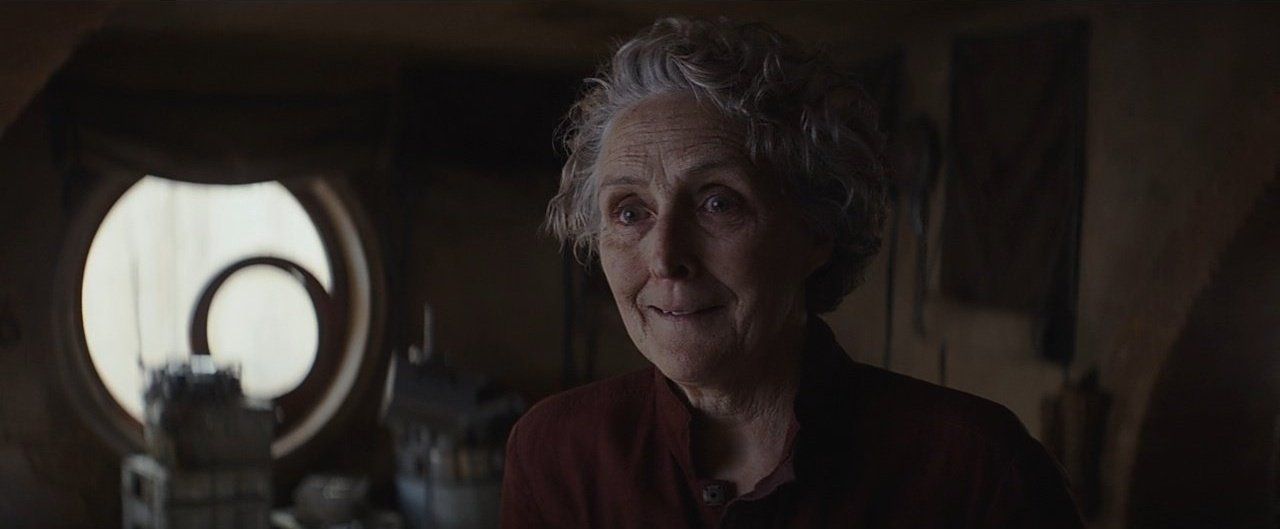Editor's Note: The following contains spoilers for Season 1 of Andor.The rebellion is a fixture of Star Wars and has been from the very beginning. But never has the franchise taken as in-depth a look at the movement as in Andor. The new series focuses on the early days of the rebellion as a few people try to get it started, but each leader is shown to have a different approach. Andor constantly questions where the line should be drawn by showing characters faced with the question. Mon Mothma (Genevieve O'Reilly), Luthen Rael (Stellan Skarsgård), Saw Gerrera (Forest Whitaker), and so many others must decide what they are willing to sacrifice for their cause. The series takes a dark tone, presenting gritty details that are often left out of Star Wars films. In some ways, Andor questions the phrase made famous by its own predecessor, Rogue One, "rebellions are built on hope." There seems to be little hope in the galaxy, only desperation. But there are exceptions. One character, in particular, stands out, Maarva Andor (Fiona Shaw), who fits right in with the rebels with whom fans are familiar.
Maarva's Speech Brings the Rebellion to Ferrix
Maarva is the mother of the series lead, Cassian (Diego Luna). She doesn't look like much, but after hearing of the rebel effort on Aldhani, she wants to join. Maarva sees hope for the first time in years. She does everything she can, and, as an old woman, the Empire underestimates her. They don't capture her to get to Cassian because she's frail, but that doesn't stop her from opposing the Empire. Unfortunately, there seems to be little rebel activity on Ferrix, so Maarva's plans are mostly in her head. She scouts for ways to sneak rebels in, but she doesn't get to see her dreams become a reality.
Maarva dies shortly after she is inspired to rebel, but that doesn't stop her. As a prominent and well-loved figure in the community, she earned a very public funeral and posthumously refuses to let it go to waste. Maarva's decision to use her funeral to inspire Ferrix's rebellion is inspired. She has her droid, B-2EMO, play a recorded speech addressing the community that loved her, and in so doing, Maarva incites a fight to break out in the streets. Her impassioned speech about everything the Empire has taken away from Ferrix is a different side of the rebellion than has appeared in Andor. In her speech, Maarva admits that she ignored the Empire for a long time, that she had Ferrix and that was enough. But then the Empire grew.
She says, "The Empire is a disease that thrives in darkness. It is never more alive than when we sleep." Using the platform of her own funeral, Maarva shines a light on the Empire's deeds, pointing out the truth that Ferrix has been ignoring. Maarva urges people to wake up and fight as she wishes she had. Her speech is a call to action for the community of Ferrix, detailing the offenses they have suffered and incriminating the Empire. It is public and undeniable. And the people of Ferrix do not disappoint. They riot in the streets, fighting the "bastards" as Maarva intended. She doesn't get to see the rebellion herself, not in its truest form, but Maarva leads it as much as anyone. She brings the rebellion to Ferrix, where the people need it.
Luthen Rael's Rebellion Is a Dark, Corrupt Place
As a rebel leader introduced in Andor, Luthen Rael is given a lot of time in the series. His approach to the rebellion is secretive and strategic. He is an intelligence operator for the rebellion, referred to as "Axis." Luthen attempts to unite the different rebel factions into one, but his moves aren't always above board. He decides priorities on his own, choosing to conceal his agent's identity even when it means sacrificing rebel lives. Luthen claims to fight Empire with their own methods. He may be a rebel, but he crossed the line of morality long before Andor began. Luthen believes that the Empire's "oppression breeds rebellion." And he doesn't hesitate to push the Empire to commit worse actions, hoping to bring new rebels to the cause. Luthen is a stark contrast to the rebels seen in the past, but he brings a level of reality to the war that it was lacking.
In episode 10, "One Way Out," Luthen privately explains his situation to his ISB spy. He claims to have sacrificed his whole life, morality, and inner peace for "a sunrise [he] will never see." Luthen doesn't expect to make it out of the rebellion alive. He knows he's a target, and more to the point, he knows he doesn't have the moral high ground with the Empire. Luthen claims to use the Empire's tools against them, but he does so in a way he believes has damned him. Still, he doesn't stop. He doesn't reform. Luthen pushes the rebellion to the limit with Machiavellian moves and counter-moves. Despite all he sacrifices, he doesn't expect praise or even to be remembered. Everything he does is secret. Few even know who he is, and Luthen works hard to keep it that way. He cannot claim the victories he wins, nor can he admit his failures. Luthen's rebellion is a dark, corrupt place where he has been forced to choose the rebel cause over his morals.
Luthen vs Maarva
Luthen and Maarva champion the same cause but in drastically different ways. Maarva's is a local rebellion centered on one group of people, while Luthen wants to unite all rebels into a cohesive group. Where Luthen aims to inspire rebels by pushing the Empire to further violence, Maarva points out the Empire's actions and offers the people hope for a way out. Maarva's approach is more akin to other Star Wars content, but it makes the speech no less impactful. Luthen's speech is a confession rather than the open call to arms that Maarva gives. He's not calling to the citizens for help. He's manipulating people to join because the Empire has left them with nothing else. Maybe Luthen sees himself in Maarva's speech, or at least who he once was when he dreamed of being a hero for the oppressed. But the two are more tied together than they are separate. Aldhani was Luthen's plan, and it inspired Maarva to her rebellion.
The truth is that Luthen can still inspire hope through his actions, even if he can no longer see it. They fight the same fight, and both are effective. While Maarva brings chaos to the Empire stationed at Ferrix, Luthen has consistently been a thorn in their side in Aldhani and everywhere else. The rebels need hopeful idealists and strategists willing to sacrifice their sense of right and wrong. Maarva's form of rebellion may be more socially acceptable, but Luthen's is just as necessary. When it comes down to it, the main difference is perception. Luthen's secret actions take place in the dark and consist of whispers, while Maarva's speech was public, and the effect was undeniable.




